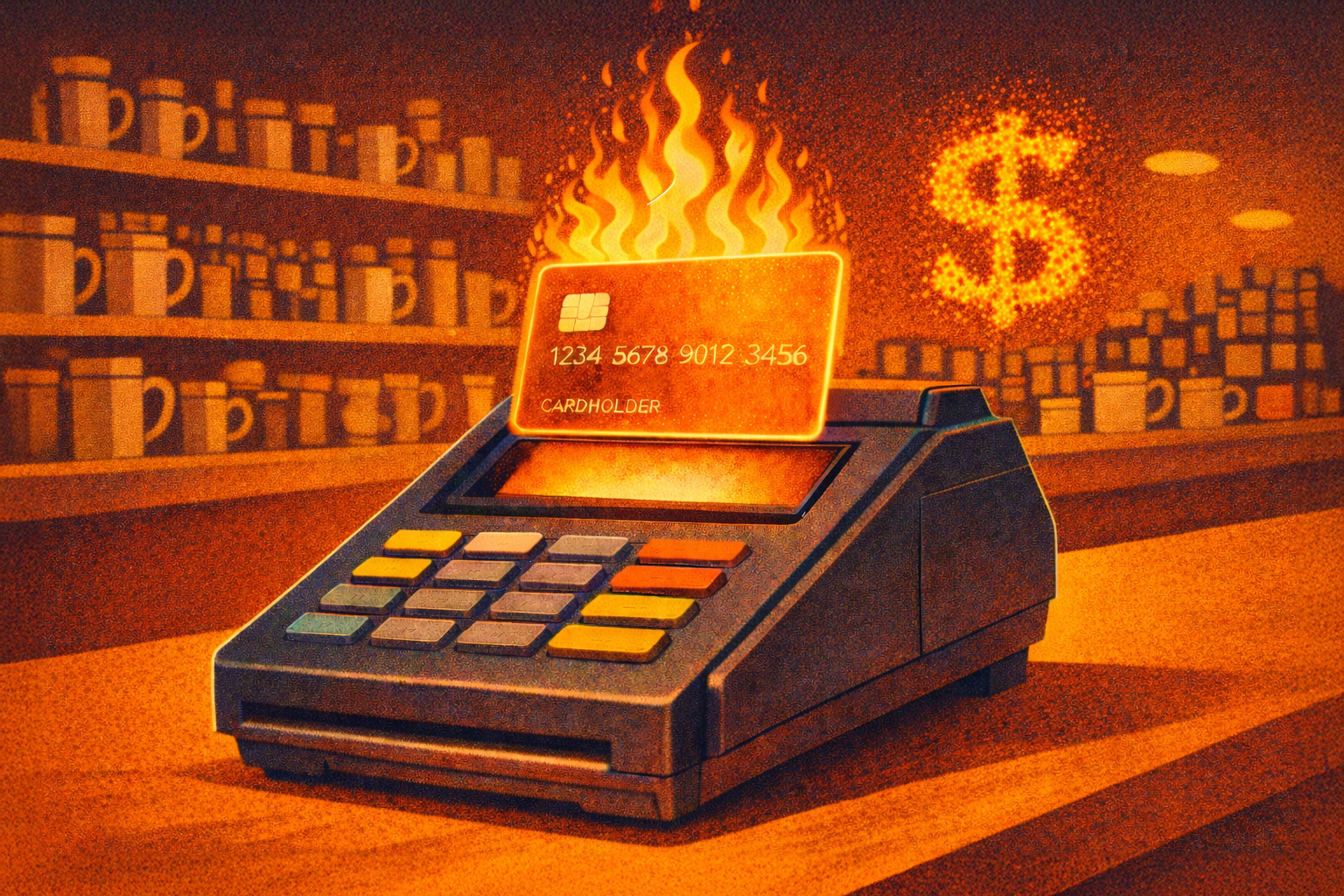Your Crypto Software Wallet’s Dirty Little Secret: It’s Not That Secure
Back to articles
The Hidden Risks of Software Wallets
Software wallets, also known as hot wallets, are popular among crypto users due to their convenience. MetaMask and Coinbase Wallet are widely used on Ethereum, Phantom on Solana, and Exodus and BlueWallet are popular choices for Bitcoin users. These wallets are typically accessible through browser extensions, mobile apps, and desktop software. However, they pose significant security risks because they’re constantly connected to the internet, making them vulnerable to online attacks and unauthorized access.
The biggest risk lies in their reliance on recovery phrases (or seed phrases). If a bad actor gains access—through phishing, malicious software, or fake websites—your crypto assets can be stolen instantly. These vulnerabilities make software wallets a poor choice for managing larger amounts of cryptocurrency.
Why Traditional Hardware Wallets Are More Secure (But Complex)
Crypto hardware wallets—or cold wallets—are physical devices that store private keys offline, protecting your crypto assets from online threats such as malware, phishing scams, and unauthorized access.
Traditional hardware wallets are designed with security in mind, often including features like:
- Secure Element Chips: Tamper-resistant hardware protects private keys even against physical attacks.
- Transaction Verification: Confirms each transaction with a PIN entered directly on the device—secure, but often tedious on small screens.
- Recovery Seed Phrases: Allow wallet recovery but also introduce risks like loss or theft.

However, these security measures come with significant complexity, cost, and potential risk:
- Recovery Phrase Anxiety: Losing or exposing your seed phrase can permanently compromise your crypto assets.
- Complex Setup & Management: Often requires technical steps, firmware updates, and unforgiving seed phrase handling.
- Higher Cost: More advanced security measures typically result in higher prices.
- Supply Chain Attack Risk: Any hardware wallet with upgradable firmware can be vulnerable to potential supply chain attacks, as recently seen with a high-profile Trezor firmware vulnerability. For a history of the most prominent wallet attacks, see our Crypto Wallet Security post.
While traditional hardware wallets provide high security for advanced users willing to navigate complexity, a simpler, equally secure solution exists for most users with Burner.
Signs It’s Time to Upgrade to a Hardware Wallet
- You’re Holding More Value: As your crypto holdings grow, so does your exposure. A hardware device keeps your assets safe from digital and physical attacks.
- You Use dApps or DeFi: Software wallets expose users to risks when interacting with decentralized finance protocols. Cold wallets mitigate that risk by storing your keys offline.
- You’re Done with Recovery Phrase Anxiety: If the idea of losing your recovery phrase or falling for a phishing scam keeps you up at night, it's time to consider something more secure.
Burner: Maximum Security, Minimal Hassle
Burner is a new kind of crypto hardware wallet that fixes the pain points of traditional devices. It uses the same secure element chip technology found in more expensive wallets but was designed without a recovery phrase, relying instead on PIN-based access to reduce risk. Unlike other wallets that require clunky input on a tiny screen, everything with Burner happens through BurnerOS, a clean, browser-based interface. No buttons, no apps, no device tapping needed after setup.
Here’s how Burner stands out:
- Fast Setup: Just tap the card to a mobile device and manage your crypto through BurnerOS, a simple web app.
- No Seed Phrases: Seed phrases are a hassle and a liability—especially if you’re the type to keep them on a Post-it. Burner skips them entirely, replacing them with secure, PIN-based access that’s safer and simpler.
- Affordable Security: Burner delivers hardware-level protection without the premium price tag.
- Everyday Friendly: Combines the usability of hot wallets with the safety of cold storage—ideal for gifting, spending, and daily use.
Busted Myths About Hardware Wallets
- Myth 1: Hardware Wallets Are Complicated: Burner simplifies everything. No app installation. No Bluetooth pairing. Just tap and go.
- Myth 2: Hardware Wallets Are for Advanced Users Only: Burner is designed for crypto newcomers, experienced users, and everyone in between.
- Myth 3: Hardware Wallets Are Too Expensive: At $19, Burner lowers the entry barrier without sacrificing any key features.
Why Self-Custody Matters More Than Ever
Whether you’re sending BTC, spending stablecoins, doing DeFi, or collecting NFTs—self-custody is critical. The more you interact with crypto, the more exposed you are to potential threats. Burner keeps your private keys non-extractable and completely offline without the clunky interfaces or risky recovery phrases. It offers stronger protection—without the frustration—compared to software, custodial, and traditional hardware wallets.
Final Thoughts
Software wallets offer convenience but carry inherent risks. To seriously protect your crypto journey, it’s time to move beyond recovery phrases and embrace a safer, simpler alternative.
Burner wallet offers robust security, ease of use, and fast onboarding, positioning itself uniquely among crypto hardware wallets. It provides non-custodial control, offline storage safety, and intuitive simplicity.
Upgrade your wallet. Protect your future. Choose Burner.
FAQ: Software Wallet Risks
❓ Why are software wallets risky?
Software wallets like MetaMask, Phantom, Coinbase Wallet, Exodus, and BlueWallet store your private keys on internet-connected devices. This makes them vulnerable to phishing scams, malware, and unauthorized access.
❓ What makes Burner wallet more secure than traditional software wallets?
Burner stores private keys in a secure chip that’s completely offline and non-extractable. It also skips recovery phrases entirely, using a safer PIN-based access model.
❓ Do I still need to worry about seed phrases with Burner wallet?
No. Burner doesn’t use recovery phrases at all. That means no seed words to lose, leak, or stash on a Post-it. Your PIN is all you need.
❓ Is Burner wallet good for everyday crypto use?
Yes. Burner gives you the security of a hardware wallet with the simplicity of a hot wallet. It’s ideal for spending stablecoins, sending BTC, or interacting with dApps.
❓ How does Burner wallet compare to Ledger or Trezor?
Burner uses the same class of secure element chips found in these more expensive wallets but offers a smoother user experience—no screen-tapping, no firmware updates, and no recovery phrase anxiety. Because Burner’s firmware is fixed and can’t be updated, it eliminates a major security risk: attackers can’t modify or tamper with the device after manufacturing, unlike wallets that require ongoing firmware updates.
❓ Why is hardware wallet security important?
Whether you’re moving BTC, spending stablecoins, or using Ethereum dApps, your assets are safest when private keys stay offline. Burner makes that level of protection easy and affordable.

Get your Burner
What to read next
Back to articlesHigh-Risk Merchant Accounts: Why You're Paying 10% Processing Fees
High-risk merchant accounts typically charge 8-10% in processing fees plus rolling reserves and constant termination risk. Learn why high-risk business credit card processing is so expensive and how stablecoins eliminate chargebacks, rolling reserves, and industry-based penalties.
Lower Fees, No Chargebacks: Why Stablecoins Beat Card Payments
Card payments work, but the fee structure was never built for small businesses. Every swipe passes through banks, networks, and processors, each taking a cut before the money reaches you. Stablecoins work differently: digital dollars that move directly from customer to merchant, settling in seconds instead of days. This post explains what stablecoins are, how they compare to cards, and why more merchants are paying attention. It's the second in a series on rethinking payments.
The Hidden Cost of Credit Card Payments for Small Businesses
Swipe fees are quietly eating into small business margins. Every time a customer taps a card, a portion of the sale is routed through banks, card networks, and processors before it reaches your business. This post breaks down how card payments actually work, why processing fees typically land between 2.5% and 3.5%, and why those costs scale with revenue rather than expenses. It's the first post in a multi-part series on rethinking payments for small businesses, from the hidden mechanics of card fees to how stablecoins introduce a fundamentally different payment rail and what that shift means for merchants, resellers, and global commerce.


